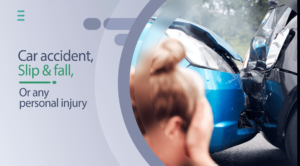If the insurance company were to discover that the cost for fixing an insured and damaged vehicle would be more than the same vehicle’s worth, then it would declare that insured property/vehicle to be a total loss.
How would an insurance company measure a vehicle’s value?
It would learn its actual cash value (ACV) that should be indicated in a recorded document, such as a Blue Book. If the owner had added certain features, and had used photographs to document the addition of those features, then that same owner could challenge the accuracy of the figure given as the ACV.
Who would receive the monetary sum that was equal to the ACV?
The owner of the insured vehicle would received that money, unless the same owner had taken out a loan, when buying that set-of-wheels. In that case, the agency that had provided the loan would receive the money from the insurance company. If the former owner, who was not without transportation, had not repaid the entire loan, then he/she would have to keep paying for the useless piece of property.
Is there any way the owner of a financed vehicle could avoid the trap created by the gap between the ACV and the amount of money owed for the loan?
That same owner could have opted for buying 2 types of insurance. He/she could have purchased the traditional automobile insurance. That would have guaranteed coverage of damages caused by an accident, assuming, of course that the level of damage had not led to the totaling of the mangled set-of-wheels.
If that owner had wanted to avoid the “gap trap,” then he or she could have also paid for gap insurance. That arranges for the coverage of any difference between the amount of money paid by the automobile insurance company and the amount of money owed to the loan-granting agency.
Should any person that has financed the purchase of a car, truck or SUV buy gap insurance, along with auto insurance?
No, not everyone would be making a wise purchase by spending money on that extra policy. That would only be the suggested approach for someone that had chosen to pay for the loan over a period of more than one or two years.
In addition, that would be the best approach for someone that wanted to buy one of the vehicles that is known to lose its value within a short space of time. By the same token, the purchase of gap insurance would make sense if the buyer could not afford to pay more than a small down payment, when taking out the loan, as per personal injury lawyer in Cayuga. Finally, drivers of financed vehicles that cover many miles also need the 2nd insurance.




